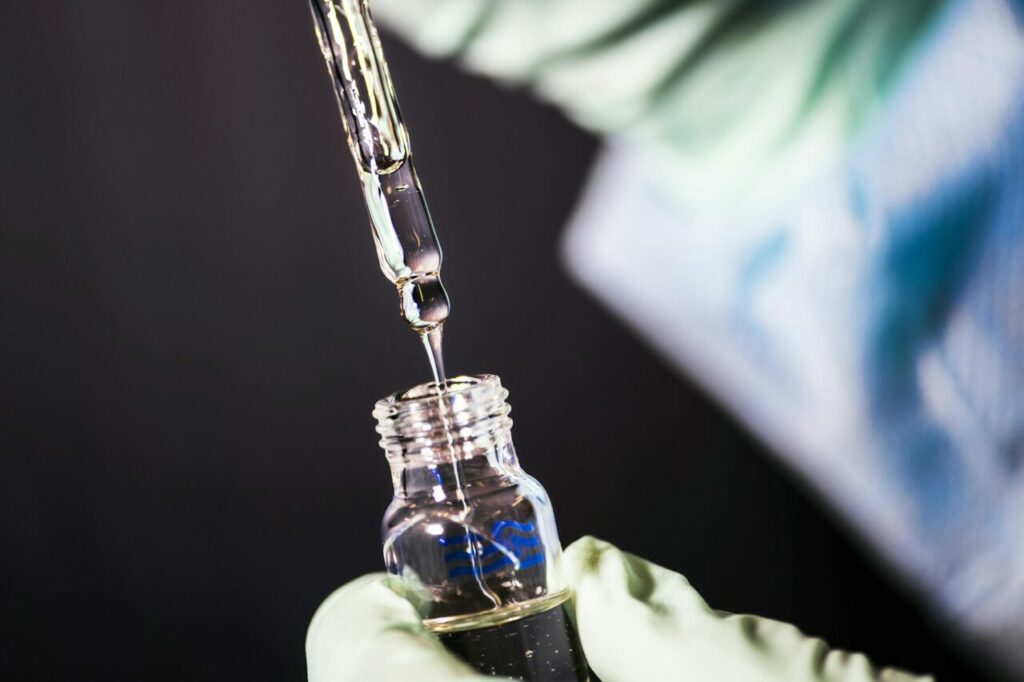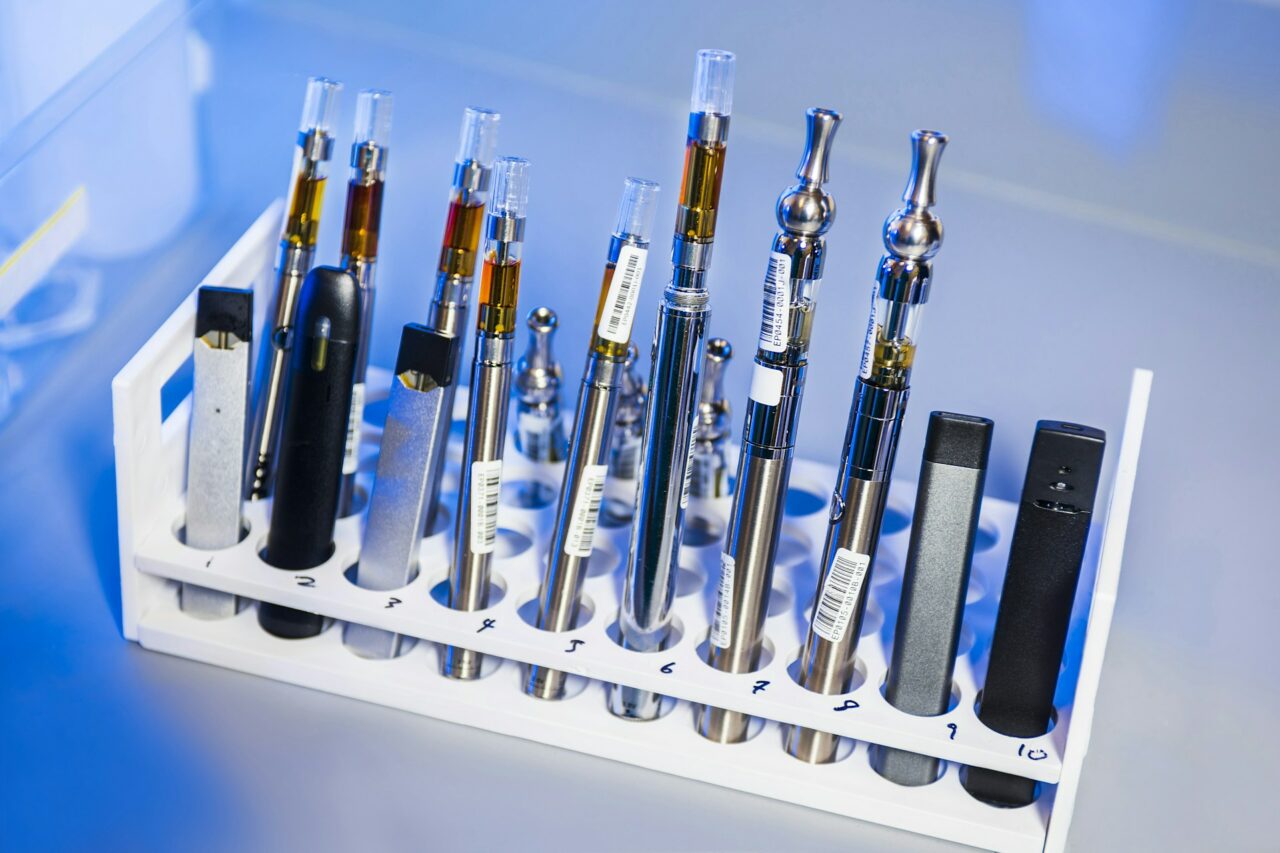The Drug Enforcement Administration (DEA) is increasing production quotas for innovative substances such as the DMT vape pen, marijuana, and other psychedelics. Leading the charge is Canada, heralding a captivating new era of understanding.
The recent announcement of increased production for specific substances opens the door for unprecedented research opportunities.
Key Takeaways:
- The DEA intends to raise production caps to 20,000 grams of psilocybin and 11,000 grams of dimethyltryptamine by 2024.
- The spirit molecule disrupts cyclical thinking and enhances brain and cognitive function.
- Suggesting an increase in these substances could advance medical science and provide affordable alternative therapies.
DEA’s 2024 Vision: Towards the Future of Psychedelics
In a significant move towards boosting research capabilities, a recent proposal from the DEA pushes for an increase in the production of specific controlled substances for scientific research in 2024. This reflects a growing recognition of the need for larger amounts to fulfill medical and research needs.
Insights into the Proposal
The revised proposal dramatically increases production quotas, signifying a rising commitment to clinical trials. For instance, the target for certain substances has nearly doubled, with the production limit set at 20,000 grams for psilocybin and 11,000 grams for DMT vape cartridges.
These changes are a direct response to feedback from registered manufacturers, who underscored the necessity for larger quantities to support ongoing and future research. The production goals for related compounds have been maintained at previous high levels to ensure a steady supply for therapeutic studies.
Potential Benefits for Scientific Research and Therapeutic Uses
The increased availability of these substances could pave the way for new scientific pursuits, particularly in uncovering their therapeutic potential. As more research becomes accessible, scientists could unearth innovative treatments for various conditions, including mental health disorders.
This intensified focus could not only expand our understanding but also aligns with the growing public interest in alternative treatments. These adaptations could propel medical science forward and offer more cost-effective treatment options than traditional methods. treatments.
Venturing into the Unknown: Present and Future Research on Dimethylamine and Psychedelics in Canada
Canada has recently intensified its focus on exploring unconventional therapy alternatives, with latest developments hinting at a potential transformation in mental health treatment.
2021 saw a heightened interest in substances recognized for their psychological benefits, despite a subsequent dip in market trends. However, ongoing clinical trials continue to produce encouraging results.

Current Situation
On December 5th, 2022, Health Canada published a Notice to Stakeholders outlining expectations for risk-management measures in clinical trials involving psychedelic-aided psychotherapy. In Canada, each province follows varying strategies for regulating psychedelics and their study:
| Ontario | The Centre for Addiction and Mental Health (“CAMH”) received the first Canadian federal grant to study psilocybin. |
| Alberta | Approval granted for the therapeutic use of specific psychedelics, including psilocybin, psilocin, ketamine, LSD, MMDA, and DMT. |
| University of Guelph | Received authorization from Health Canada to grow psilocybin-containing mushrooms |
| Saskatchewan | The Linden Medical Centre provides support for individuals suffering from PTSD to access psychedelics |
| New Brunswick | Hosts a series of private clinics offering PTSD treatment with ketamine |
| British Columbia | Has decriminalized personal possession of specific substances |
| Quebec | Mindspace by Numinus legally prescribes psilocybin and MDMA for the treatment of treatment-resistant depression and PTSD. |
Potential Areas of Research
Several potential areas of research are emerging, particularly concerning the therapeutic applications of dimethyltryptamine and psilocybin. As the evidence supporting their efficacy continues to accumulate, future studies could explore:
She describes her experiences with DMT vape pen cartridges as distinct and individual each time. “With the first inhale, my body transitions into a state of profound relaxation, and colors appear unusually vibrant,” she narrates. “I feel as though I’m weightless, as if floating in water, yet held steady by an invisible force.“
Entrepreneur Tim Leonard describes an intensely profound experience: “It felt as if my soul separated from my body and entered a domain that can only be described as divine.” He saw “a semi-transparent human skull with a brain pulsating and radiating with colors and energy,” delivering an awe-inspiring message about the miracle of human existence.
The Rise of Vape Pens: A Guide for Conscious Consumers
The growing popularity of premium DMT vape pens and cartridges has transformed the manner in which people engage with this substance. These small devices offer a discreet and convenient way to derive its benefits. The increasing user base underscores the necessity of responsible usage and staying informed about ongoing research.
- Educate Yourself: Stay updated with credible sources of information about studies and regulations. Following clinical trials and their outcomes can provide valuable insights about safety and effectiveness.
- Know Your Product: Purchase from reputable sellers offering clear labeling and quality guarantees. Understanding what’s in your product contributes to a safer experience.
- Practice Moderation: Start with smaller doses to understand your response. Conscious consumption can lead to more enjoyable experiences.
- Join the Community: Engage in discussions with other users and medical professionals. Sharing experiences and knowledge fosters a supportive environment and encourages responsible use.
Looking Ahead: How Canada’s Online Dispensary is Preparing for the Psychedelic Wave – Where to Buy Vape Pens
As research continues to deepen our
Mushroom Gummies Canada is your trusted online dispensary, offering a well-informed selection of psilocybin products for every exploration. We aim to make the fascinating world of psychedelics more approachable than ever before.
With the DEA’s recent initiative sparking curiosity in psychedelic research, consumers can look forward to an array of intriguing opportunities in the future.
Frequently Asked Questions
Can the substances sought by the DEA be obtained by the general public?
Not exactly. These substances are currently under examination by scientists for their potential advantages. If you’re interested in acquiring a DMT vape cart or any of the mentioned substances, your options include visiting a clinic that provides them as part of a treatment plan, or purchasing them from an online dispensary.
What makes dimethyltryptamine unique among other psychedelic substances?
Dimethyltryptamine stands out from other psychedelics due to its powerful effect and brief duration. In contrast to LSD, which can alter neural activity for several hours, dimethyltryptamine triggers a short but deeply engaging alteration of consciousness, marked by vivid visual patterns and a variety of other sensations.
What condition benefits from the use of dimethyltryptamine?
Several studies suggest that this compound can have immediate antidepressant benefits for patients the day after administration. Other research has examined its impact on mental health outcomes among healthy volunteers, with a primary emphasis on reducing symptoms of depression and anxiety.





